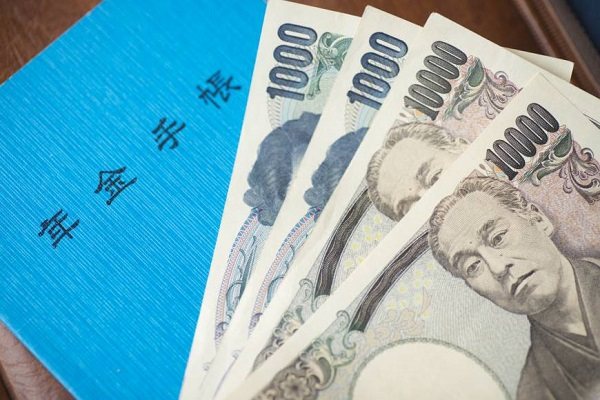At what age is a pension in Germany?
When a citizen of respectable age reaches old age and receives assistance from the state depends on the year of his birth.
Retirement age in Germany
| Year of birth | Pension age |
| Before 1947 | 65 years old |
| From 1947 to 1958 | 65 years +1 month for each previous year |
| 1958 | 66 years old |
| From 1959 to 1963 | 66 years +2 months for each previous year |
| 1964 onwards | 67 years old |
Periodically, the German government discusses raising the retirement age. There are plans to increase it first to 68, and after 2069 to 70 years.
Pension formula
Mathematically, the pension formula looks like this:
{\displaystyle {\text{Rente}}={\text{EP}}\cdot {\text{ZF}}\cdot {\text{RAF}}\cdot {\text{aRW}}}
where:
Rente
- monthly pension expressed in euros (German Rente)
EP
- pension points (German Entgeltpunkte)
ZF
- output coefficient (German Zugangsfaktor)
RAF
- coefficient determining the type of pension (German Rentenartfaktor)
aRW
- current value of the pension points (German: aktueller Rentenwert)
Pension points EP
EP pension points reflect the amount of pension contributions of the insured for all years of his working activity. According to § 63 of the sixth book of the German Social Code (SGB VI), the amount of pension contributions (contributions to the pension fund) within one year from a salary equal to the average annual salary of all insured persons in the pension fund gives 1 pension point.
Thus, pension points:
- reflect the dependence of the pension on income: The pension point earned during one calendar year reflects the ratio of the individual income of the insured person to the average income of the insured persons of the same calendar year.
- allow you to compare pension contributions for different years: For a person applying for a pension, the relative amount of pension contributions paid is important, and not the year in which these contributions were paid.
- allow you to create a dynamic income-related pension: Pension points together with the current value of the aRW pension point form the basis of a dynamic, income-related pension system.
Data table for calculating pension points for old age pension:
| Year | Pension insurance tariff | West Germany | East Germany | ||
| (employee + employer share) | Average salary | Maximum | Average salary | Maximum | |
| 1990 | 18,7 % (9,35 % + 9,35 %) | ||||
| 1991 | 17,7 % (8,85 % + 8,85 %) | ||||
| 1992 | 17,7 % (8,85 % + 8,85 %) | ||||
| 1993 | 17,5 % (8,75 % + 8,75 %) | ||||
| 1994 | 19,2 % (9,60 % + 9,60 %) | ||||
| 1995 | 18,6 % (9,30 % + 9,30 %) | ||||
| 1996 | 19,2 % (9,60 % + 9,60 %) | ||||
| 1997 | 20,3 % (10,15 % + 10,55 %) | ||||
| 1998 | 20,3 % (10,15 % + 10,15 %) | ||||
| 1999 | 19,5 % (9,75 % + 9,75 %) | ||||
| 2000 | 19,3 % (9,65 % + 9,65 %) | 4480 DM | 3640 DM | ||
| 2001 | 19,1 % (9,55 % + 9,55 %) | 4480 DM | 3780 DM | ||
| 2002 | 19,1 % (9,55 % + 9,55 %) | 2345 | 1960 | ||
| 2003 | 19,5 % (9,75 % + 9,75 %) | 2380 | 1995 | ||
| 2004 | 19,5 % (9,75 % + 9,75 %) | 2415 | 2030 | ||
| 2005 | 19,5 % (9,75 % + 9,75 %) | 2415 | 2030 | ||
| 2006 | 19,5 % (9,75 % + 9,75 %) | 2450 | 2065 | ||
| 2007 | 19,9 % (9,95 % + 9,95 %) | 2450 | 2100 | ||
| 2008 | 19,9 % (9,95 % + 9,95 %) | 2485 | 2100 | ||
| 2009 | 19,9 % (9,95 % + 9,95 %) | 2520 | 2135 | ||
| 2010 | 19,9 % (9,95 % + 9,95 %) | 2555 | 2170 | ||
| 2011 | 19,9 % (9,95 % + 9,95 %) | 2555 | 5500 | 2240 | 4800 |
| 2012 | 19,6 % (9,80 % + 9,80 %) | 2625 | 5600 | 2240 | 4800 |
| 2013 | 18,9 % (9,45 % + 9,45 %) | 2695 | 5800 | 2275 | 4900 |
| 2014 | 18,9 % (9,45 % + 9,45 %) | 2765 | 5950 | 2345 | 5000 |
| 2015 | 18,7 % (9,35 % + 9,35 %) | 2835 | 6050 | 2415 | 5200 |
| 2016 | 18,7 % (9,35 % + 9,35 %) | 2905 | 6200 | 2520 | 5400 |
| 2017 | 18,7 % (9,35 % + 9,35 %) | 2975 | 6350 | 2660 | 5700 |
| 2018 | 18,6 % (9,30 % + 9,30 %) | 3045 | 6500 | 2695 | 5800 |
Output factor ZF
This coefficient was included in the pension formula in 1992. Upon reaching retirement age, the insured person receives an old-age pension. To take into account the time of retirement, the output coefficient ZF is used.
Coefficient ZF = 1 if retirement occurs at an age in accordance with German pension legislation. With an earlier retirement, the ZF coefficient will be less than 1, and with a later retirement, it will be greater than 1.
In case of early retirement, the ZF exit coefficient is reduced by 0.003 for each calendar month of early retirement. This corresponds to a reduction in pension of 0.3% for each month. This reduction in pension applies to the entire period of pension payment, and in the future does not depend on the age of the recipient.
If you retire later, the ZF retirement factor increases by 0.005 for each calendar month following the achievement of the statutory retirement age. This corresponds to an increase in pension of 0.5% for each month.
Starting from January 1, 2001, this ZF coefficient was also introduced for the calculation of other types of pensions. The calculation procedure and the value of the ZF coefficient for them are determined by the relevant rules of German pension legislation.
Output factor ZF for old age pension:
| Retirement | ZF |
| 4 years earlier (48 months) | 0.856 |
| 3 years earlier (36 months) | 0.892 |
| 2 years earlier (24 months) | 0.928 |
| 1 year (12 months) earlier | 0.964 |
| 3 months earlier | 0.991 |
| 2 months earlier | 0.994 |
| 1 month earlier | 0.997 |
| by achievement penny. age | 1 |
| 1 month later | 1.005 |
| 2 months later | 1.01 |
| 3 months later | 1.015 |
| 1 year later (12 months) | 1.06 |
| 2 years later (24 months) | 1.12 |
| 3 years later (36 months) | 1.18 |
| 4 years later (48 months) | 1.24 |
RAF coefficient
The RAF coefficient was introduced into the pension formula in 1992 and determines the type of pension. Thanks to this coefficient, it became possible to use the pension formula for calculating other types of pensions.
RAF pension type factor:
| Type of pension | RAF |
| old age pension | 1 |
| pension in connection with raising a child/children | 1 |
| total disability pension | 1 |
| partial disability pension | 0.5 |
| widow/widower's pension is large | 0.55 |
| small widow/widower pension | 0.25 |
| orphan's pension | 0.2 |
| half-orphan's pension | 0.1 |
Cost of aRW pension point
The current value of the pension point is calculated annually and published on July 1. Its value depends on the size of salaries, on the level of insurance contributions to the pension fund and on the demographic situation in the country. A separate formula is used to calculate the current value of a pension point.
Examples of calculations
Example 1
The worker, born in 1946, worked in West Germany for 45 years, regularly contributing his insurance contributions to the pension fund. Moreover, his salary always corresponded to the average salary of all those insured in the pension fund, which gives him 1 pension point for each year.
At the age of 65, he will retire in autumn 2020 as an old-age pension (RAF = 1) in accordance with German pension law (ZF = 1). At the time of retirement (autumn 2020), the value of the pension point was aRW = 27.47 Euro. From July 1, 2019, the value of a pension point has been increased to aRW = 28.61 Euro.
Calculation of monthly pension for the period from autumn 2020: Rente = 45 x 1 x 1 x 27.47 = 1236.15 Euros/month.
Calculation of monthly pension for the period from July 1, 2020: Rente = 45 x 1 x 1 x 28.61 = 1287.45 Euro/month.
Example 2
The worker, born in 1946, worked in West Germany for 45 years, regularly contributing his insurance contributions to the pension fund. Moreover, his salary was 2/3 of the average salary of all those insured in the pension fund. At the age of 65, he will retire in autumn 2020 as an old-age pension (RAF = 1) in accordance with German pension law (ZF = 1).
Calculation of monthly pension for the period from autumn 2020: Rente = 45 x 2/3 x 1 x 27.47 = 824.10 Euro/month.
Calculation of monthly pension for the period from July 1, 2020: Rente = 45 x 2/3 x 1 x 28.61 = 858.30 Euro/month.
How the benefit is issued
Germans do not automatically retire. You must submit a document to receive assistance, written by hand or on a special form. The latter, by the way, will speed up the review process.
The following documents are attached to the application:
- tax identification number;
- bank account details (bank name, bank code);
- health insurance card;
- passport or foreign passport.
In some cases, additional documents will be required in addition to the mandatory list:
- birth certificate of the child(ren);
- unemployment certificate;
- educational certificate.
Table: average pension in different countries of the world (data as of February 2020)
| A country | Pension (indicated in the national currency of the country) | Pension (in US dollars) |
| Australia | AUD 1505 | 1000 |
| Austria | 1400 euros | 1543 |
| Azerbaijan | 300 Azerbaijani manats | 176 |
| Argentina | 5446 pesos | 88 |
| Belarus | 446 Belarusian rubles | 199 |
| Bulgaria | 412 leva | 233 |
| Brazil | 1250 Brazilian reais | 278 |
| Great Britain | £535 | 685 |
| Hungary | 135,000 forints | 438 |
| Germany | 770 euros | 849 |
| Greece | 697 euros | 768 |
| Denmark | 2,800 euros | 3087 |
| Israel | 5300 shekels | 1532 |
| Iran | 80,250 Iranian rials | 191 |
| Ireland | 1071 euro | 1178 |
| Spain | 987 euros | 1099 |
| Italy | 1,200 euros | 1320 |
| Kazakhstan | 81,062 tenge | 212 |
| Canada | 2000 Canadian dollars | 1491 |
| Cyprus | 740 euros | 815 |
| Korea | 910,000 Korean won | 753 |
| Kuwait | 906 Kuwaiti dinars | 2980 |
| Lithuania | 374 euros | 408 |
| Mexico | 18,000 Mexican pesos | 1000 |
| Netherlands | 1,300 euros | 1418 |
| New Zealand | NZD 1714 | 981 |
| Norway | NOK 14,667 | 1584 |
| United Arab Emirates | AED 10,200 | 2776 |
| Poland | 2100 zlotys | 538 |
| Portugal | 550 euros | 600 |
| Romania | 1265 lei | 446 |
| Russia | 15,431 rubles | 242 |
| Singapore | 600 Singapore dollars | 431 |
| Slovakia | 460 euros | 502 |
| USA | $1,503 | 1503 |
| Turkish Republic | 8000 Turkish lira | 1329 |
| Finland | 1,632 euros | 1781 |
| France | 1000 euros | 1091 |
| Croatia | 2500 kn | 366 |
| Czech | 11807 CZK | 460 |
| Chile | 157,952 Chilean pesos | 198 |
| Switzerland | 2,000 francs | 2046 |
| Sweden | 1,697 euros | 1866 |
| Estonia | 582 euros | 656 |
| Japan | 183,700 Japanese yen | 1700 |
List of countries where there are no old-age pensions:
- Thailand,
- India,
- Niger,
- Kenya,
- Suriname,
- Nigeria,
- Tanzania,
- Honduras,
- Iraq,
- Philippines,
- Vietnam,
- Pakistan,
- China.
Also check out what kind of pension they receive in Thailand, New Zealand and Australia.
German pension categories
There are two categories of pensions in Germany:
- state;
- private.
State pension
Financial support from the state is provided to citizens upon reaching 65-67 years of age or subject to a number of conditions. These include loss of ability to work, illness, and disability. The minimum benefit amount is 364 euros.
The state pension is paid only with compulsory work experience (minimum 5 years). If a citizen does not have one, he can only rely on private pension provision.
In the states of eastern Germany, pensions are higher than in the western part of the country by an average of 58 euros for men and 249 for women.
Amount of pension payments
The minimum old-age pension is 300 euros. Persons whose pension payments are below the subsistence level can apply for additional financial support from social funds.
The scheme for calculating pension payments in Germany is quite complex. In addition to wages (the amount of payments to the general insurance fund) and length of service, a number of additional factors are taken into account, which together form a certain “pension score”. When calculating such a score, the citizen’s age, the total period of his studies at universities (reducing the length of service), the period of service in the armed forces, the number of children and a number of other criteria are taken into account.
The standard is taken to be the amount of pension payments to a conditional citizen who has made contributions from the average salary to the insurance fund for 45 years and retired upon reaching the age of 67 years. The pension determined on the basis of this “standard” is 1250 euros. The actual average pension in Germany is lower and varies by region. In West Germany, men receive an average of 1,052 euros, women - 521 euros. In the eastern part of Germany, pensions are lower (1006 euros and 705 euros for men and women, respectively). The difference in the level of provision for pensioners in different parts of the state is explained by the fact that in the territories that belonged to the GDR, women participated in labor activities on equal terms with men - their total length of service was higher than that of their peers from Western lands.
When spouses who have not reached retirement age divorce, pension contributions are automatically recalculated. The amount of contributions to the state insurance fund is considered as a common asset; contributions from both spouses during the marriage are added up and distributed in equal shares. For widowers and widows, a double pension is provided.
Pension size in Germany?
| View | Benefit amount for men (euros) | Amount of benefit for women (euros) |
| Old age pension | 1040 | 580 |
| Survivor's pension | 278 | 594 |
| Disability (disability) pension | 747 | 714 |
If the senior citizen's total income does not exceed 789 euros, he is entitled to receive Grundsicherung - the minimum social benefit. The amount of assistance is calculated depending on the life situation, and ranges from 324-404 euros per month. A person needs to collect a number of documents and apply to Sozialamt - the state Social Security Administration.
In addition to this benefit, the state provides funds for repairs, medicines, and utility bills, depending on the life needs of the pensioner.
Pension provision at the official level
The pension system in Germany was formed earlier than in other countries. The corresponding “Generation Pact” in the 19th century was adopted on the initiative of Chancellor Bismarck. All employed citizens were obliged to pay part of their own income to the treasury, from which the funds received were then distributed among Germans who lost their ability to work due to various circumstances.
At the time the law was adopted (in 1891), only 1.7% of earnings were transferred to the insurance fund. Together with additional factors (low life expectancy in Germany and low unemployment), the minimum tax rate for workers made it possible to provide citizens of retirement age with a sufficient level of pension payments. By 2020, mandatory payments to the budget increased to 18.7%.
Registration in the insurance system is carried out upon first employment. A registered person is opened a personal account and assigned an individual number, with which the citizen can subsequently contact the Deutsche Rentenversicherung (an organization responsible for monitoring payments and fees to the fund). The employee provides the same number to the hiring company when applying for a position. If for some reason a personal account in the system has not yet been opened for a citizen, the registration will be undertaken by the employer, the health insurance service or the state labor exchange (depending on the reasons why the German citizen is applying for a pension). The government agency annually informs every insured person over 27 years of age about the expected level of pension payments.
The State Insurance Fund pays three types of pension subsidies:
- according to the age;
- for incapacity (receiving disability);
- for loss of a breadwinner (pension for dependents).
Germans whose monthly income is up to 3,900 euros (the majority of such citizens) can count on receiving pension payments in connection with reaching old age. Pensioners whose earnings exceed the limit amount resort to the help of private financial institutions.
Many people prefer a combined option and, in addition to mandatory pension payments to the state insurance fund, transfer part of their wages to a personal account opened in a private bank. Such contributions are voluntary, the amount of contributions is set by the able-bodied citizen himself and is not regulated by the government.
Private pensions in Germany
There are dozens of private pension funds in the country that provide benefits to older people. The service is popular among wealthy Germans and unofficially employed citizens. By the way, there are few of the latter in the state. How it works?
A person enters into an additional pension agreement and every month contributes a certain amount to the fund, the amount of which he determines independently. The system is cumulative and makes it possible to receive substantial monthly cash assistance in old age.
Funds go directly to an open bank account and not to the fund. In theory, they can be used at any time, but the Germans, a thrifty and practical nation, put them aside for old age.
What pensions do Germans have?
What pension do most Germans receive? Let’s not bother ourselves with calculations, leaving the bureaucratic casuistry to the specialists. Let us only note that these calculations take into account many components, in addition to length of service and deduction amounts. It takes into account, for example, age, period of study, number of children, military service, etc. The number of pension points is determined, by which the final amount is determined.
The average pension can afford quite a lot.
The pension system is based on the “basic pensioner” - a certain standard or conditional pension unit who worked for 45 years for an average salary and retired at age 67. The pension of the “ideal German” is about 1,250 euros and, with some slyness, is considered average. It's a pity, but the average German pensioner doesn't look like this at all. Few people can boast of working experience of 45 years, and even to receive an average salary they have to work for more than one year.
Find out what the average salary is in Germany - how much and what professions German employers are willing to pay, what education is now most in demand in Europe.
In western Germany, the average pension for men is 1,052 euros, in the east it is 1,006 euros. In the east, on the contrary, women's pensions are higher (705 euros) than in the west (521 euros). The explanation is simple: in the former GDR, women worked equally with men and had more experience.

Widowed people are paid a double pension.
The numbers are not amazing, but pensioners still live well here. There are no longer large mortgage expenses at this age, and many receive additional corporate payments or savings from private pension funds. Widows and widowers, by the way, receive a double pension in Germany.
Pensioners can continue to work while receiving a pension, the amount of which will be reduced depending on their salary.
Well, a few words need to be said about German medicine.
Contributions to the German pension fund
The amount of the mandatory contribution is affected by the size of the official salary; the higher it is, the more a person contributes “for old age.” In Germany, transfers and other documentary issues are handled by the employer.
The standard monthly contribution to the pension fund is 18.7%. 9.35% of the contribution is paid by the employer, and the same amount is deducted from the person's salary.
If a citizen has an income of less than 450 euros monthly, contributions are distributed differently: 15% is contributed by the employer, 3.7% by the employee.
Every year the Pension Fund sends letters to citizens over 27 years old calculating the expected assistance upon retirement.
Persons who are entitled to assistance before retirement age:
- People with 45 years of official work experience. In reality, there are very few of them in Germany.
- German women born before 1952 who have fulfilled a number of conditions provided by the state retire at age 60.
- Disabled and disabled persons.
§ State social insurance system
First of all, it should be noted that Germany has a well-developed state social insurance system. It guarantees the protection of citizens in case of illness, unemployment, and also in old age. State pension insurance is part of the German social insurance system. Responsible for pension insurance throughout Germany is an institution called "Deutsche Rentenversicherung" . It deals with the calculation and payment of pensions (pension in German: Rente ). When starting work in Germany, a person becomes automatically insured in the state pension insurance system.
All insured persons in the pension insurance system receive a personal insurance number “Versicherungsnummer” and an account in this system. When contacting Deutsche Rentenversicherung, you must always have your insurance number. This number must also be provided to your employer along with the documents required when applying for a job in Germany. Registration in the state pension insurance system and obtaining this insurance number for a person who does not yet have one is carried out either by the employer, or by the labor exchange or health insurance office.
The Deutsche Rentenversicherung sends an annual information letter to every insured person over 27 years of age with information about how much pension they can expect upon retirement.
On separate pages of our website you can find information about social assistance and basic benefits in Germany, as well as benefits for the unemployed and child benefits.
Pensions of miners, civil servants
In Germany, citizens of certain professions receive high pension benefits. This category includes:
- miners, miners;
- civil servants (judges, officials, police, etc.);
- church workers.
Miners upon reaching 60 years of age with at least 25 years of mining experience in Germany receive a special type of pension in the average amount of 1,250 euros.
Civil servants ensure and support the national sovereignty of Germany; they can count on high pensions and additional benefits. Their average income is 2,356 euros.
Teachers, doctors, firefighters and other public sector workers are classified as government employees and receive increased pension benefits.
Church workers in Germany are also entitled to increased pension benefits, which are paid by the church pension fund.
§ Work experience and pension receipt
The right to receive a pension under pension insurance occurs only if the insured has participated in pension insurance for a minimum number of years. This minimum period of participation in pension insurance in Germany is 5 years (Mindestversicherungszeit, Wartezeit). Only after this can he be entitled to receive a pension.
If the insured expects to receive a pension due to a long or especially long period of participation in pension insurance, which gives him the opportunity to retire at an earlier age, these periods of participation in pension insurance should reach 35 and 45 years, respectively.
Participation in pension insurance includes not only the time during which a person pays statutory insurance premiums while working at an enterprise, but also the time during which a person received unemployment benefits (ALG-I), cared for a child during the first three years of his or her life (Kindererziehungszeiten) or a sick family member. While caring for a child, despite the fact that the person does not pay insurance fees, he will be calculated a pension in the amount that is accrued on average to each insured person.
In general, it must be said that the size of the pension in Germany depends on the size of contributions and the duration of payment of contributions to the state pension insurance system.
Pension for disabled people, disabled people and WWII veterans
In Germany, local authorities independently determine the amount of material support for citizens who are unable to work for health reasons. The benefit is approximately 600 euros.
Disabled people of the 1st category receive the most - 100% of the average old-age pension. For the 2nd, 90% is charged, for the 3rd – 50%.
The German government believes that WWII participants should receive assistance from the state for the very fact of such status, but there is no uniform amount of benefits. It ranges from 120-600 euros and depends on a number of factors:
- the year of birth;
- availability of awards;
- duration of participation in the war.
Only a German citizen can receive additional payments and benefits for veterans (having a German passport is a prerequisite).
Japan
The average Japanese pension, which today is about 1,700 USD, allows pensioners of the Land of the Rising Sun not to experience financial difficulties and feel quite comfortable. This money is quite enough for food and to pay for utilities; there is also some left over for leisure activities, which, however, at this age can be quite moderate in terms of expenses.

A Japanese can retire at the age of 65, this applies to both men and women. However, if a citizen of the country expresses a desire to retire earlier, state laws allow him to do this: you can stop active work at the age of 60, but the pension amount will decrease by 25%.
If a Japanese person continues to work after reaching retirement age, each year worked adds a certain amount to pension payments, and by the age of 70, the pension may increase by a quarter.
According to statistics, the Japanese are the longest living nation in the world. The number of citizens who have passed the century mark exceeds 60 thousand people, the average life expectancy is 84 years.
Experts believe that proper nutrition helps the Japanese achieve such years: the diet of residents of the Land of the Rising Sun is dominated by rice, soy, and seafood. In addition, upon retirement, the Japanese continue to lead an extremely active lifestyle. Japanese pensioners can be seen in any part of the world as restless tourists.
The vast majority of Japanese elderly people do the so-called morning exercises “by radio”; older Japanese people try to prefer walking to traveling by car. In addition, the country has a healthcare system recognized by many experts as the best in the world. After 60 years, every Japanese regularly undergoes medical examinations, keeping their finger on the pulse, literally and figuratively.
Return to contents
Pension for German widows and orphans
The government takes care of families and supports spouses at the time of loss of a partner. You can apply for a “widow’s pension” if the deceased spouse:
- made contributions to the pension fund for at least 5 years;
- your partner had an accident at work;
- the deceased was already receiving a pension.
For the first three months after receiving the benefit, the widower (widow) receives the full amount of the benefit. From the 4th month, the pension falls by 25 or 50% of the original amount, depending on the assigned benefit category.
The widow's pension is automatically canceled if the widower remarries.
Pension sizes for different categories of citizens
There are a number of types of pensions paid only by the state:
- by age: 65-67;
- by disability: congenital or acquired;
- the presence of an injury that prevents you from performing work activities;
- work in the mines and the onset of age - 60;
- death of a second family member (husband, wife).

In Germany, the principle of equalization of pensions in the event of divorce is used. A wife raising children usually earns less than her husband. In court, the amounts received are distributed equally between the spouses automatically, without requiring them to submit statements.
Minimum pension in Germany
When a person reaches a certain age or receives a disability, he applies for payment to the Pension Fund. If the amount of accrual is minimal, less than €789 per month (800 dollars or 55 thousand rubles), then he is given an application for the accrual of a special Grundsicherung benefit. When calculating the amount, all the person’s income and the current specific life situation are taken into account, so the amount ranges from €324 to €404.
Additionally, the state pays for utilities, housing, repairs, medical care and other needs upon provision of documents confirming the expenses incurred.
Average pension in Germany
All information about pension amounts is available on official websites. Its value depends on the gender of the citizen and his place of residence in the country:
- Women have less amounts to pay than men;
- in the Eastern part they receive more than in the Western part.
As of January 1, 2019, the average amount of accruals in € after payment of all taxes is presented in the table:
| West Germany | Eastern | Standard calculated | |
| Men | 1018 | 1068 | 1441,35 |
| Women | 630 | 855 | 1264 |
Calculation for all types of pensions will give an average value of €770. The standard settlement amount is a certain amount that is calculated assuming that certain conditions are met by the citizen:
- experience is 45 years;
- payment of contributions to the Pension Fund without interruption;
- receiving the average statistical salary throughout your working life.
It’s impossible to actually earn this kind of experience:
- a person studies, obtaining a specialty;
- a woman takes care of small children;
- a number of other factors.
On average, the male population is 40 years old, and the female half is 30. In 2020, the government decides to establish a standard calculated pension until 2025 at 48% of the average salary. This should prevent any real decline.
By old age
A person who has 5 years of experience or 60 contributions (1 contribution is deductions per month of work) can apply for government payments. For comparison: in Russia it takes 15 years. At this time, periods without contributions are included:
- official status of unemployed;
- caring for a child under 3 years of age or a sick family member.
Failure to comply with this condition will result in only other types of pensions or benefits. The amount is influenced by factors such as:
- the amount of insurance contributions;
- duration of work;
- age;
- political and economic situation in the country;
- place of residence - Western or Eastern part;
- type of deductions.
Foreigners receive a pension on the same terms as Germans if they have worked in Germany for at least 5 years.
When emigrating from the country, a person has the opportunity to withdraw transfers from the Pension Fund, but only his part.
By disability
Total or partial disability gives the right to receive a pension before the established age. There are restrictions:
- accident at work - 1 month's contribution is sufficient for accruals;
- domestic injury or illness - at least 1 year of transfers to the Pension Fund.
- conclusion of a medical commission indicating whether it is possible to resume work after rehabilitation.

No fees required for 5 years. Partial disability - a citizen can remain at the workplace for any profession for less than 6 hours.
There is no set payment amount. It is 100% of the age average for disability group 1, 60% for disability group 2, and 30% for disability group 3.
Social
One of its types is support for orphans in the event of the death of their parents. The amounts are minimal - 10% of the salary if one person died, 20% if both died. Payments continue until the age of 18. May be extended if the child:
- studies;
- is undergoing military service;
- incapacitated (unable to work).
In Germany, unemployed citizens cannot claim a state pension. For example, in the USA, everyone receives it when they reach a certain age.
Russian pensioners can only count on social benefits when moving to Germany. It was possible to transfer it from Russia, but in 2020 a ban was imposed. Those who have received refugee status receive only benefits equal in size to unemployment payments.
Late migrants can count on a number of benefits if they studied or did military service in the country, worked full time, or were declared incapacitated.
Civil servants and miners
These workers receive special, rather large payments - for civil servants. These include teachers, doctors, police officers, judges, etc. The size of pensions is more than 2000 euros, which is 2 times higher than the average in Germany. Miners and miners with 25 years of experience can count on €1,200 at age 60.

Widows and widowers
Social pension, which citizens who have lost their spouse count on. If they need financial support, they apply for a second one. The following conditions must be met:
- the deceased made contributions to the Pension Fund for at least 5 years;
- cause of death - accident at work;
- the deceased was already receiving payments.
For three months the amounts are transferred in full, later they are reduced to 20-50%.
Important from BBQcash: remarriage is grounds for stopping payments of the second pension.
Orphans' pension in Germany
Upon the loss of one breadwinner, a minor receives financial assistance from the state only if the parent had at least 5 years of official work experience. As a rule, it is 10% of the average salary of the deceased (small pension). In the event of the death of both breadwinners, the minor receives a large pension - 20% of the official income of the parents.

The benefit is paid until the age of 18, but can be extended under a number of conditions:
- an orphan cannot go to work due to physical (mental) injuries (disability);
- studies at school (technical school, institute);
- undergoes military (environmental, social) service.
Great Britain
Experts believe that the UK pension system is close to perfection. As in most other countries, pensions in the kingdom can be public, private or based on length of service. Men retire at age 65, women at age 60–65. If a British pensioner continues to work after reaching this age, a pension supplement is added to the pension for each year worked.
The average UK citizen earns £125 per week.
To qualify for a basic pension, a citizen of the kingdom must work in the country for at least 10 years: each year worked increases the amount of the future pension by 4.44 pounds sterling per week. The minimum basic pension would therefore be £44.4 per week.
If a Briton has chosen to accumulate a pension amount in one of the private financial institutions, he can independently determine the amount of payments; no restrictions are set.
As a rule, employees contribute 5-8% of their earnings to such savings funds: in accordance with recent changes in legislation, now, if necessary, you can withdraw a quarter of the amount accumulated in this way without paying taxes.
Some English people take this step, for example, to improve their living conditions.
More than significant pension supplements are provided in the UK for veterans of the Second World War: depending on the military rank or the severity of the injuries received, such a pensioner can receive in Russian currency from 150 to 650 thousand rubles per month.
Of course, with such passive income, a British pensioner may well devote the autumn of his life to travel, all kinds of hobbies, and the implementation of projects for which he did not have enough time in his youth.
Return to contents
Prospects for the pension system in Germany
In Germany, 20% of the population is of advanced age or has serious health problems and cannot replenish the state treasury. In this regard, the government is thinking about the need to “push back” the retirement age.
In Germany, it is not customary to celebrate old age with children or accept financial support from them; support for older people falls on the shoulders of the government. Senior officials are discussing the possibility of increasing the percentage of contributions to the pension fund, but no specific decisions have been made yet.
Daily life of German pensioners
It should be noted that the cheerful German retired tourists, carefree traveling the world independently or in organized groups, whom we often see in pictures or on television screens, do not represent the typical majority of elderly German residents.
True, it cannot be said that German elderly people are poor - the state does an excellent job of providing for the older generation: its low-income representatives receive subsidies to pay for housing, medical services and even food. Taking into account the constant care of the government, pensioners live in Germany, albeit without frills, but being confident in the stability of their future.
Response to pension reform, or protest instead of dacha
In response to the government's plans to raise the retirement age, many Russians took to the streets. The first numerous actions initiated by Alexei Navalny took place on July 1 in three dozen Russian cities. Since then, protests against raising the retirement age have been repeated with noticeable regularity.

Pension reform in Russia in cartoons by Sergei Elkin
Raising the retirement age in Russia under the guise of the 2018 World Cup
It is noteworthy that the Russian government announced plans to raise the retirement age during the 2018 World Cup. According to experts, the authorities have made a safe bet on sports euphoria.










